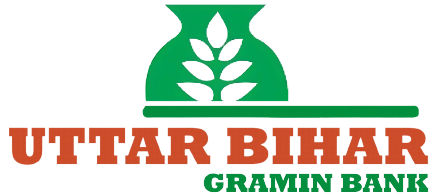The Bihar Gramin Bank Power Bonanza Salary Account is a salary-focused bank account designed to add convenience and small but useful perks to employees’ monthly pay. It combines a zero-balance facility with a salary-linked overdraft (OD), employer verification (HR undertaking), and routine banking add-ons like debit cards and insurance. Below I explain who can open it, what documents you need, how the OD works, costs, repayment rules, and practical examples so you can see how it might change cash flow for salary earners.
Who can open
This account is intended for salaried individuals whose employers are willing to credit salaries directly to the bank. Typical eligible categories are:
- Private-sector employees whose company has a payroll arrangement with Bihar Gramin Bank.
- Government and public sector employees posted in the bank’s service area.
- Employees of small businesses if the employer signs the required HR undertaking and agrees to credit salaries.
Why this matters: The bank depends on predictable salary credits to offer benefits such as the OD facility and waiver of minimum balance charges. If your employer won’t do direct credit, the salary-account perks usually aren’t available.
Zero balance feature
The account typically carries a zero minimum balance requirement. That means you do not need to maintain a fixed monthly balance to avoid charges. Practically, this benefits employees who receive variable monthly pay or those who want simpler budgeting.
Example: If your take-home is ₹20,000 and you have months with higher bill-outs or one-off deductions, a zero-balance salary account prevents penalty fees that would otherwise erode your cash flow.
Documents required
The bank requires standard KYC and employer-related papers. Expect to provide:
- Photo ID: Aadhaar, passport, or driving licence.
- Address proof: Aadhaar, utility bill, or rental agreement.
- PAN card (for tax-related linking).
- Recent passport-sized photograph.
- Salary proof: appointment letter, recent salary slip or salary certificate.
- Canceled cheque or bank mandate form for linking employer payroll.
Why each item: Identity and address meet RBI/AML rules; PAN links tax records; salary documents let the bank assess OD eligibility and set limits.
OD facility & limits
The Power Bonanza account usually offers an overdraft linked to net monthly salary. Limits are set based on your confirmed salary and employer credibility. Common approaches are:
- OD up to 1x to 3x your net monthly salary. For example, with a net salary of ₹40,000 an OD limit might be ₹40,000–₹1,20,000.
- Fixed maximum caps for different salary bands: e.g., up to ₹50,000 for junior staff and higher for senior staff (bank sets bands).
- Probationary waiting period—OD may be offered after 1–3 salary credits or completion of probation.
Why limits matter: The bank bases OD size on salary because employer salary credit is the primary security for recovering outstanding amounts if needed.
OD pricing
Overdrafts are priced with interest charged on the daily outstanding amount. You will generally see:
- Interest rate: A specified annual rate (example illustration below). The rate is applied daily to the outstanding balance.
- Processing/renewal fee: One-time or annual administrative charges may apply.
- Moratorium or penal charges: Extra fees if you miss repayment conditions.
Illustrative cost example: Assume an OD interest rate of 12% p.a. (check current bank rate). If your outstanding is ₹50,000 for 30 days, interest = 50,000 × 0.12 × (30/365) ≈ ₹493. That’s how daily accrual works—short-term borrowing avoids months of interest if you clear principal quickly.
Why you should check rates: OD rates vary between banks and over time. Ask the bank for the current rate sheet, processing fees, and whether interest compounds monthly or is charged as simple interest.
HR undertaking
An HR undertaking is a written consent from your employer that permits the bank to debit your salary in case of default and confirms salary credit instructions. Typical elements:
- Employer letterhead with company name, address, and authorized signatory.
- Employee name, designation, and salary breakup (basic/net salary).
- Statement authorizing the bank to recover OD dues from future salary credits.
- Employer contact details for verification.
Why it’s required: The undertaking gives the bank legal recourse and speed in recovering dues. It also confirms that salary credits will be routed to that account, which is the foundation of the OD product.
Repayment norms
Repayment is normally automated and tied to each salary credit. Key points:
- Auto-recovery: On salary credit, the bank first recovers outstanding interest and then principal as per agreed terms.
- Repayment schedule: Could require full clearance at next salary credit or allow staged recovery across 1–6 months depending on agreement.
- Prepayment: You can usually repay OD early without penalty—helpful to reduce interest cost.
Example: If you avail an OD of ₹60,000 and your employer credits your ₹30,000 salary next month, the bank may recover ₹30,000 (clearing part of principal and interest) and leave the remainder for subsequent months. Always confirm whether the bank will recover the full outstanding or follow a split schedule.
Extra perks
Salary accounts often include non-cash benefits that improve daily banking convenience. For Power Bonanza you can expect:
- Free debit card with limited free ATM withdrawals per month.
- Zero or waived charges for inward credit and basic transactions because salary inflows reduce bank operating risk.
- Complimentary personal accident insurance or group life cover—helpful for low-cost protection.
- Preferential rates on fixed deposits and personal loans for existing salary customers.
- Net/Mobile banking and SMS alerts with waived fees for basic services.
Why these matter: Small perks reduce monthly banking costs and offer safety nets (insurance), which add to your salary’s value without extra outlay.
FAQs
- Q: Can a contractor or freelancer open this salary account?
A: No. This product is for salaried individuals whose employer will execute the HR undertaking and route payroll to the bank.
- Q: What if my salary reduces—does OD limit change?
A: Yes. The bank will re-evaluate limits on salary change. Expect a proportional reduction and a formal communication.
- Q: Are prepayments allowed?
A: Typically yes. Prepayment reduces interest cost immediately because interest is charged on the outstanding balance.
- Q: How quickly is OD sanctioned?
A: After employer verification and required salary credits—often within a few weeks. Some banks require 1–3 months of salary history.
- Q: Can the employer stop the HR undertaking later?
A: Employers can revise payroll arrangements, but banks usually require notice and will adjust facilities accordingly. Outstanding OD must still be repaid.
- Q: Where can I get exact interest rates and fees?
A: Ask the Bihar Gramin Bank branch or the account document pack for a current tariff sheet. Always compare the effective cost (interest + fees) before using OD regularly.
If you want, I can draft a sample HR undertaking clause or calculate the exact OD interest for a specific outstanding amount and period. Tell me your salary and prospective OD limit and I’ll run the numbers.

Kritti Kumari is a banker and MBA graduate who writes about banking, finance, and customer-friendly services. She simplifies complex financial products into easy guides, helping readers understand Bihar Gramin Bank’s offerings and make smarter money decisions.

